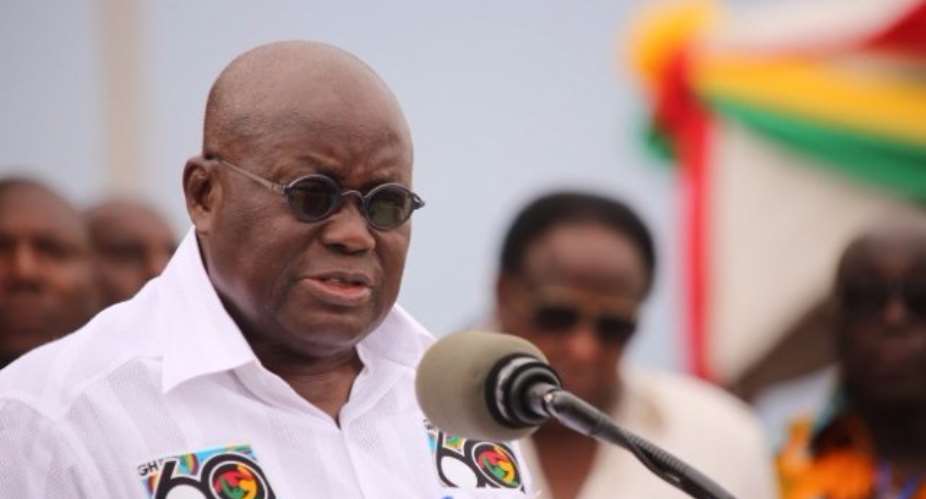The University Teachers Association of Ghana (UTAG) has described as ‘unfortunate’ a comment by the President that the country’s educational curricula are to blame for graduate joblessness.
President Nana Addo Dankwa Akufo-Addo told a gathering at the 50th Anniversary of the Association of African Universities in Accra, a university education in the country no longer guarantees a job.
He said the situation had been created by the absence of transferable skills and creativity of the graduates.
Related Article: Only 10 percent of graduates find jobs after first year - ISSER Research
The President’s comment was supported by the latest research by the Institute of Statistics, Social and Economic Research (ISSER) which revealed only 10 percent of graduates are able to find jobs after their first year out of school.
The 2017 study data also indicated it takes up to 10 years for a large number of the graduates to secure employment as a result of the lack of employable skills.
The findings of the ISSER research was made known at the 2017 MasterCard Foundation Annual Learning Summit held in Accra last week.
President Akufo-Addo said one of the ways to reverse the situation is for the educational curricula to offer relevant skills that the job market needs.
But UTAG said the work of tertiary institutions does not extend to the creation of jobs for the teeming unemployed graduates.
UTAG President, Dr. Harry Agbanu told Joy News Tuesday tertiary institutions have the mandate to provide holistic training for the graduates.
He said he found the President’s comment injudicious since it is the duty of government to create the congenial environment for the graduates to secure a job and not the universities.
“Elsewhere governments are making policy decisions to invest in the training of the type of manpower they need and they have been supporting the private sector,” he noted, adding the situation in Ghana is to the contrary.
Dr Agbanu lamented the failure of governments to provide subvention to the tertiary institutions, a situation he said has placed an undue financial pressure on the schools.
“They [tertiary schools] have to depend on Internally Generated Fund (IGF)…so if those supposed to make the decisions turn back to lambast it is unfortunate,” he said.
Dr Agbanu said the President should be asking ‘critical questions’ such as the state of science education in the country’s primary schools.
“What is the state of the technical schools and what kind of investment are we making as a country?” he quizzed.
He implored the President to focus the attention of his government on improving the state of education.
Story by Ghana | Myjoyonline.com | Austin Brakopowers | [email protected] | Instagram: @realbrakopowers





 Akufo-Addo commissions Phase II of Kaleo solar power plant
Akufo-Addo commissions Phase II of Kaleo solar power plant
 NDC panics over Bawumia’s visit to Pope Francis
NDC panics over Bawumia’s visit to Pope Francis
 EC blasts Mahama over “false” claims on recruitment of Returning Officers
EC blasts Mahama over “false” claims on recruitment of Returning Officers
 Lands Minister gives ultimatum to Future Global Resources to revamp Prestea/Bogo...
Lands Minister gives ultimatum to Future Global Resources to revamp Prestea/Bogo...
 Wa Naa appeals to Akufo-Addo to audit state lands in Wa
Wa Naa appeals to Akufo-Addo to audit state lands in Wa
 Prof Opoku-Agyemang misunderstood Bawumia’s ‘driver mate’ analogy – Miracles Abo...
Prof Opoku-Agyemang misunderstood Bawumia’s ‘driver mate’ analogy – Miracles Abo...
 EU confident Ghana will not sign Anti-LGBTQI Bill
EU confident Ghana will not sign Anti-LGBTQI Bill
 Suspend implementation of Planting for Food and Jobs for 2024 - Stakeholders
Suspend implementation of Planting for Food and Jobs for 2024 - Stakeholders
 Tema West Municipal Assembly gets Ghana's First Female Aircraft Marshaller as ne...
Tema West Municipal Assembly gets Ghana's First Female Aircraft Marshaller as ne...
 Dumsor is affecting us double, release timetable – Disability Federation to ECG
Dumsor is affecting us double, release timetable – Disability Federation to ECG
